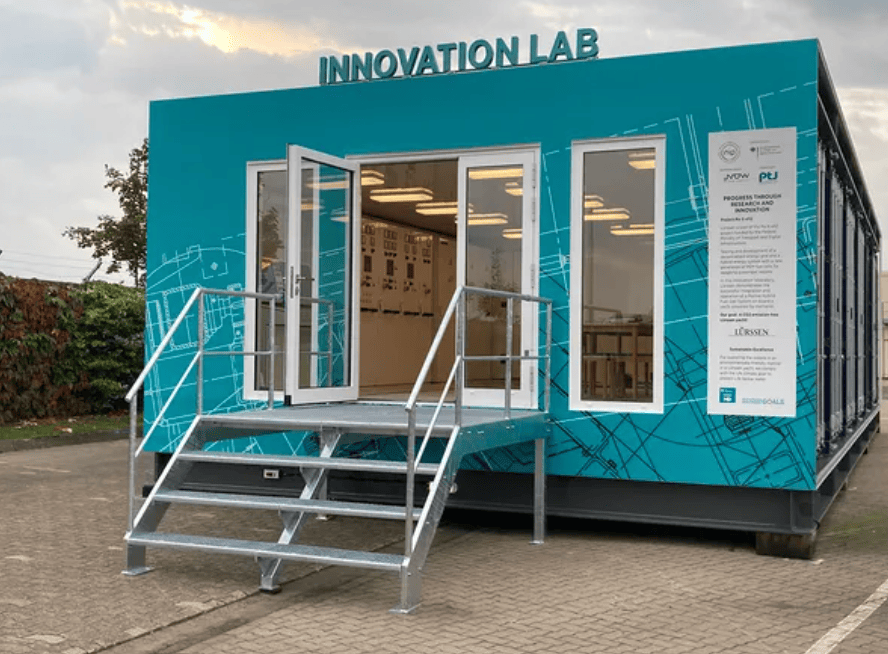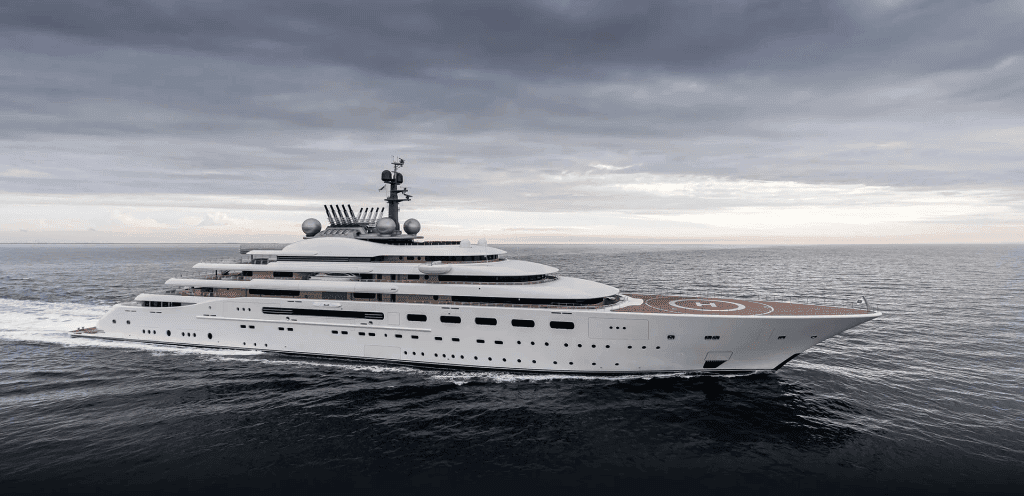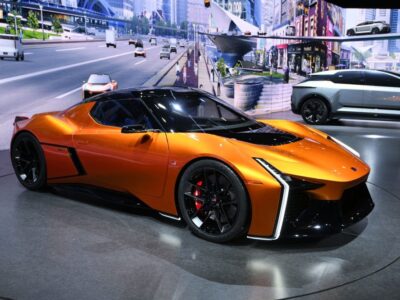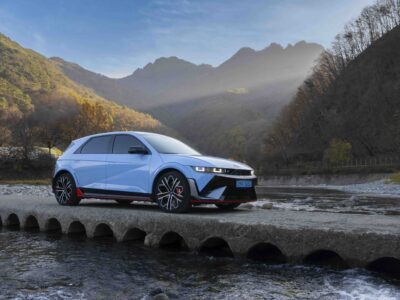German Company’s Vessel Boasts 1,000-Mile Emissions-Free Range
Boats and yachts are tricky when it comes to zero-emission revamps. Since they require extreme quantities of fuel to cross oceans, clean-energy solutions are being heavily researched and tested to ensure these vessels can make voyages quickly, safely, and efficiently.
German luxury yacht builder Lürssen Yachts shared video footage of the first-of-its-kind megayacht, which had a successful test launch on March 8, 2023. Project Cosmos is a hydrogen-powered vessel that redefines clean maritime travel.
At first glance, the brown exterior may seem offputting, but this isn’t the finished product. Former Apple designer Marc Newson is designing it, and The yacht is believed to be commissioned by Japanese billionaire Yusaku Maezawa.
It’s a massive vessel, longer than two Olympic swimming pools. The test launch was the first time Project Cosmos was unveiled to the public.
Once paneling is added to the sides, it will have that white aesthetic we associate with superyachts. Lürssen anticipates Cosmos’ construction will wrap up in 2025.
Lürssen has been building boats since the 1860s, beginning with racing rowboats. According to the company website, as industrialization boomed in Germany in 1886, the company moved into motorized boats. It earned a reputation as a shipbuilder willing to take risks and create vessels nobody else would. In the modern era, Lürssen has been researching methanol and hydrogen power to make yachts cleaner for the environment.

The fuel cell development has made waves in the yachting community, no pun intended. As of 2009, Lürssen has partnered with the German national research project Pa-X-ell, which includes other firms, to test marine hybrid fuel cell systems. In 2022, the shipbuilding firm opened its Innovation Lab. The think tank works to create eco-friendly solutions to pressing questions regarding maritime travel.
The lab’s most notable project was the continuation of methanol-to-hydrogen power. In development since 2012, Lürssen created the first maritime PEM fuel cell system with an integrated methanol reformer. There is a legitimate fuel cell that can help superyachts make lengthy voyages without harming the atmosphere or ocean.
Why methanol fuel cells? “Fuel cells have very little maintenance and are more efficient than a diesel engine, which is already a very efficient way to produce power,” said Peter Lürssen, company CEO. Biofuels have been another innovation Lürssen has worked on since developing the methanol motors in 2009.

The fuel cells work like this. They are stacked together, then combined with a fuel reforming unit to send methanol-based power to a ship’s propulsion, ventilation, and other electrical components. The only byproduct is moist air and water. The company says Project Cosmos can travel up to 1,000 miles, albeit at a slow pace. When anchored, the yacht can power itself for 15 nights without creating emissions.
The sustainable measures don’t stop there. All Lürssen yacht interiors are crafted with sustainably cultivated wood. Since 2016, all company vessels have been built with exhaust after-treatments to mitigate nitrogen oxide emissions. They also have advanced energy management and monitoring systems to provide and analyze transparent data on efficiency and an automated platform to manage energy generation, distribution, and consumption.
To ensure that methanol propulsion is a viable option for yachts going forward, Lürssen announced a collaboration with Rolls-Royce Power Systems to strengthen this technology.
Carbon dioxide is taken from the air, then converted into a renewable fuel source. The companies’ partnership was announced at the Monaco Yacht Club in September.
“Methanol is currently leading the discussion on alternatives to fossil diesel,” said Daniel Chatterjee, director of Technology Management & Regulatory Affairs at Rolls-Royce’s Power Systems business unit, at the September 2022 Monaco Yacht Show.
“Methanol has disadvantages here compared to diesel, but clear advantages over other alternatives to fossil fuels,” noted Lürssen. “We’re now seeing that today’s prospective buyers of tomorrow’s yachts are increasingly thinking about how they can make running their vessels as environmentally sustainable and climate-friendly as possible.”





